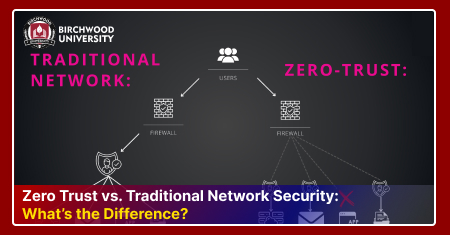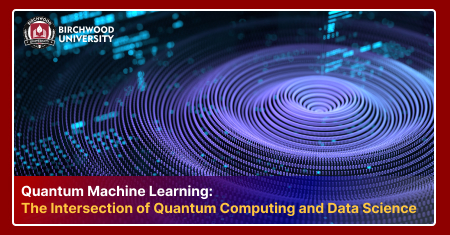From Theory to Practice: Master of Science in Data Science Explained
Mar 20, 2024Data is everywhere as we enter the digital age. From the intricate transactions recorded in the financial market to the seemingly small details of our daily online interactions, information is being constantly generated and captured at an unprecedented rate. Data science is the interaction of scientific methods, statistical analysis, and more advanced technology, aimed at extracting meaningful information and patterns from vast amounts of data. This extracted knowledge empowers individuals and organizations to make informed decisions, solve complicated problems, and understand the always-changing landscape of the modern world. For those seeking to unlock the potential of data and want a career in Data Science, a Master of Science in Data Science (MSDS) program can serve as a transformative gateway.
Unraveling History of Data Science:
Although the term "Data Science" did not become widely used until the late 1960s, the field's origins can be found in the early days of mathematics and statistics. The basis for data analysis was established by visionary statisticians and mathematicians who created a diverse range of techniques for deriving conclusions and analyzing data. However, the late 20th century saw the genuine emergence of data science as a separate profession, concomitant with the development of the internet and the ensuing explosion of data generation.
Data science gained more prominence with the introduction of widely accessible computing power and the creation of complex algorithms, especially in the field of machine learning. The ability of machine learning algorithms to learn from data without the need for specific programming transformed data analysis and utilization, leading to applications that were previously unthinkable. These days, data science works across industry borders and finds useful applications in a wide range of industries, including technology, healthcare, finance, and marketing. Skilled data scientists are in high demand from businesses of all sizes and in a wide range of industries in order to evaluate their data, spot trends, and open the full potential of their information assets. For the foreseeable future, there will likely be a strong demand for qualified data scientists as data continues to rise exponentially.
Demystifying the Data Science Program: Unveiling the Curriculum
A Master of Science in Data Science program is a postgraduate degree meticulously designed to equip students with the comprehensive knowledge, practical skills, and hands-on experience necessary to thrive in this dynamic field. The curriculum typically encompasses a thoughtfully curated blend of theoretical and practical components, providing a well-rounded foundation in the following core areas:
- Statistics and Probability:
This forms the bedrock of data analysis techniques, including statistical methods for hypothesis testing, regression analysis, and time series analysis. Mastering these foundational concepts equips students to critically evaluate data, draw valid conclusions, and avoid common pitfalls associated with data interpretation.
- Machine Learning:
This exciting field delves into the world of algorithms that learn from data without explicit programming. Students explore various machine learning algorithms, such as linear regression, decision trees, and deep learning models, gaining hands-on experience in predictive models, automating tasks, and uncovering hidden patterns within data.
- Programming:
As the language of communication with computers, programming skills are important for Data Scientists. Students typically master programming languages like Python and R, becoming adept at data manipulation, analysis, and visualization. These languages provide powerful tools for wrangling data, extracting insights, and building compelling data-driven projects.
- Data Wrangling and Cleaning:
Data, in its raw form, can be messy and inconsistent. This important aspect of the program equips students with the skills to acquire, clean, and prepare data for analysis. They learn techniques for handling missing values, identifying and addressing inconsistencies, and ensuring the quality and reliability of the data they work with.
- Data Visualization:
Effective communication of insight gleaned from data is paramount. This section of the program of the program focuses on developing skills in creating informative and impactful visualizations. Students learn to utilize various visualization techniques to present data in a clear, concise, and engaging manner, allowing them to effectively communicate their findings to diverse audiences.
- Communication and Collaboration:
Data science rarely operates in isolation, The program cultivates strong communication skills, enabling students to clearly articulate technical concepts to both technical and non-technical audiences. Additionally, it supports collaboration skills, preparing students to work effectively within diverse teams, including domain experts, engineers, and other data scientists.
This specific structure of a Data Science program can vary depending on the institution. Some programs offer full-time options designed to be completed in one to two years, catering to individuals looking for a focused and immersive learning experience. Others cater to working professionals by offering part-time or online courses, providing more flexiblity for those juggling work and academic commitments,
Is an MSDA the Right Course for You? Planning Your Course:
The decision to pursue a Master of Science in Data Science is a deeply personal one. While the program can be a valuable asset for career advancement, it's crucial to carefully consider your individual goals and circumstances before starting on your academic journey. Here are some key questions to consider:
- Do you possess a strong foundation in math, statistics, and computer science? While the program provides foundational knowledge, a basic understanding of these subjects can significantly enhance the learning experience.
- Are you passionate about data and its potential to solve real-world problems? A genuine interest and enthusiasm for data are crucial for sustained motivation throughout the program and a successful career in the field.
- Are you eager to continuously learn and stay up-to-date with the latest advancements in data science? As mentioned earlier, the field is fast-paced, and a commitment to lifelong learning is essential for long-term success.
- Are you prepared to invest the time and resources required to successfully complete a postgraduate program? A Master's degree requites significant dedication, time management, and financial investment. Carefully assess your personal resources and ensure you are well-prepared for the commitment involved.
If these questions resonate with you, and you have a strong will to understand the world of data science, then a Master of Science in Data Science program can be the perfect starting for your career.







